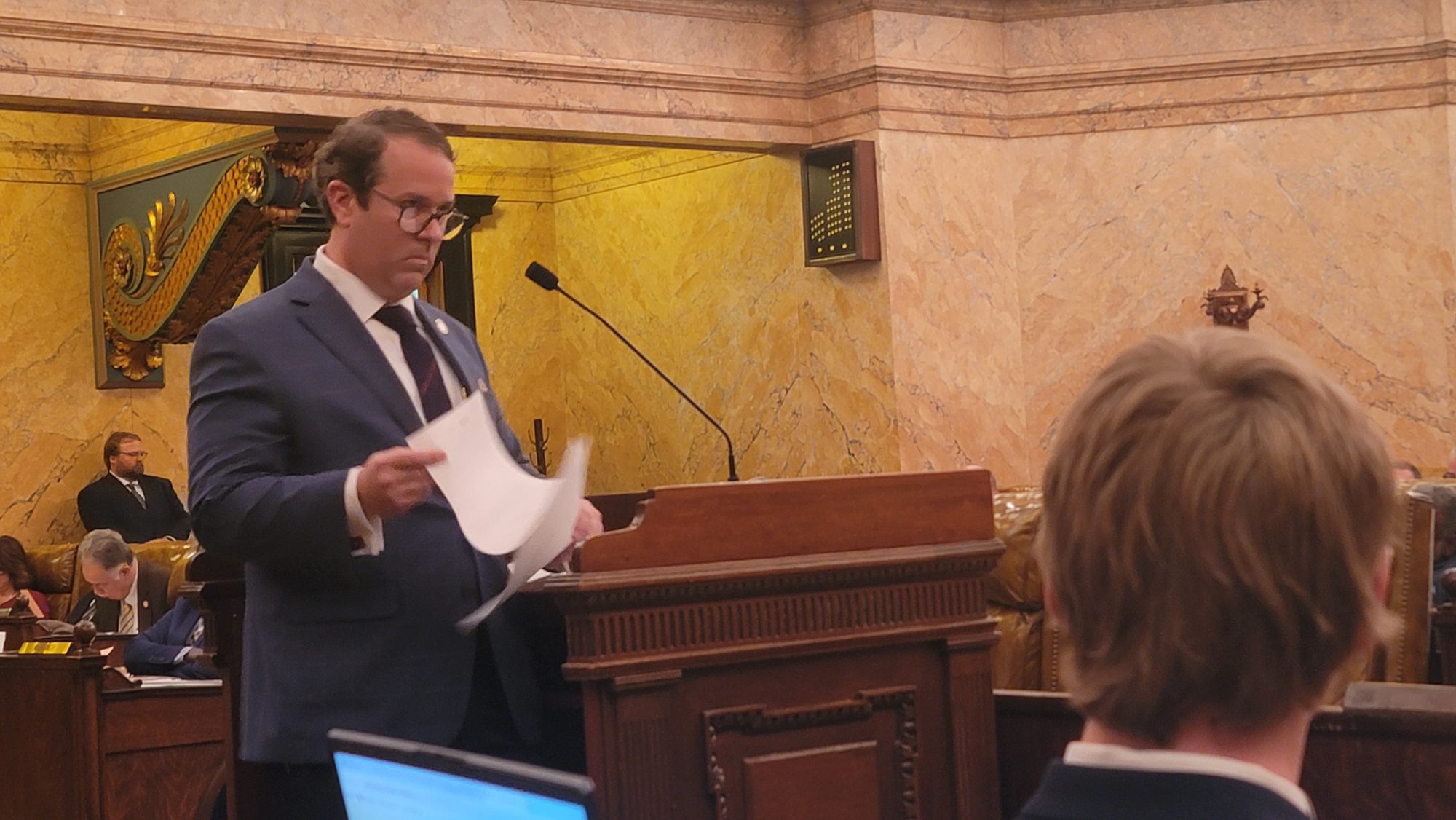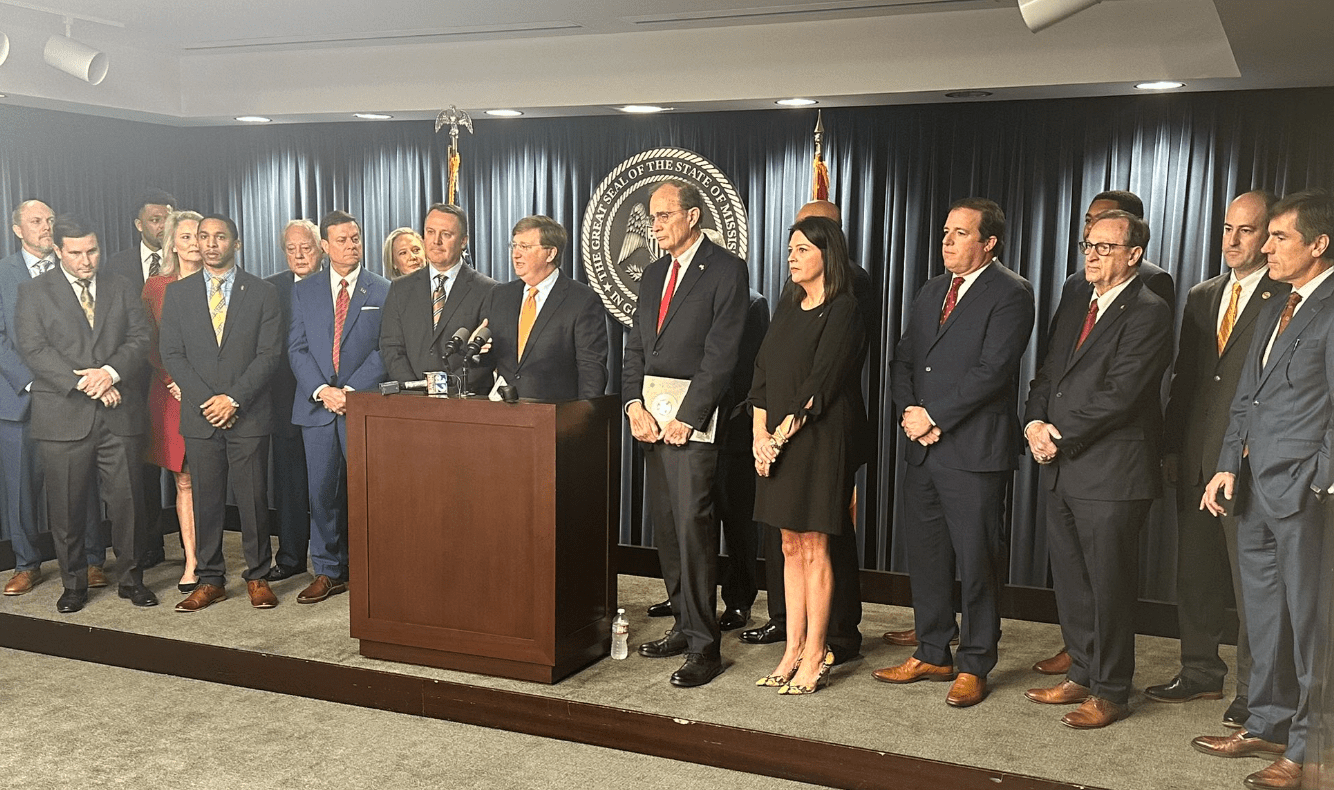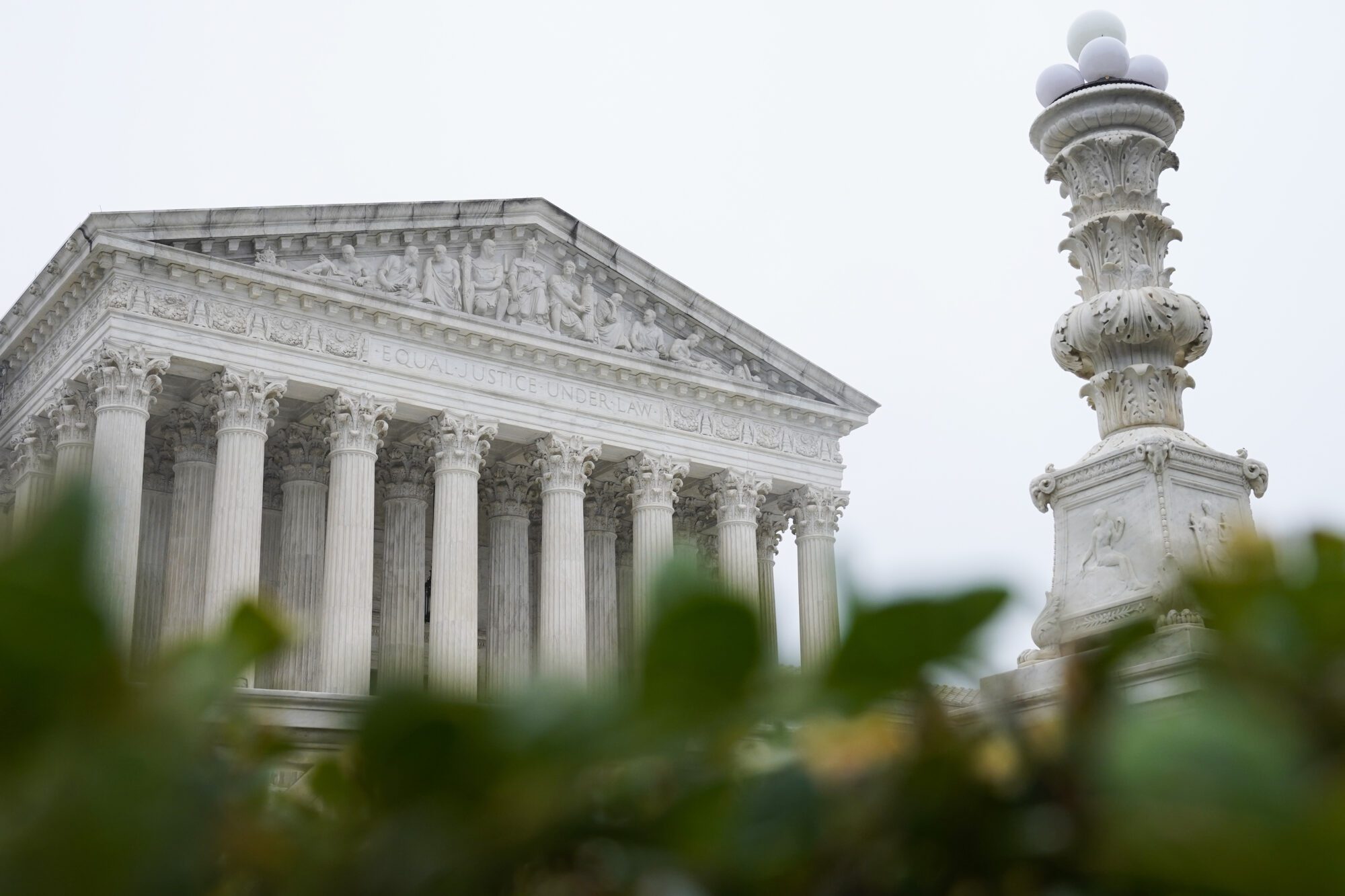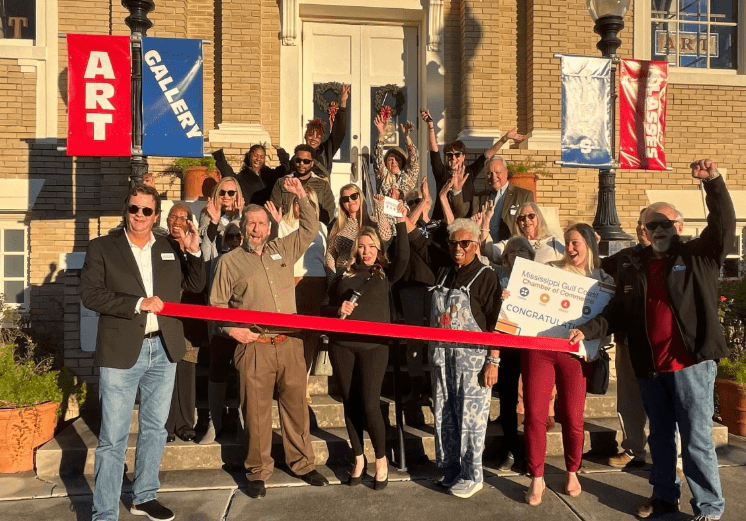
Rep. Fred Shanks presents HCR 11, the ballot initiative bill, to members of the House. (Photo Magnolia Tribune)
The new proposed initiative process would prohibit changes to the state’s constitution and allow the Legislature to propose their own versions of initiatives if they are in disagreement.
Lawmakers in the Mississippi House of Representatives have taken the first steps in re-implementing a ballot initiative process for voters. The action took place quietly in the House Constitution Committee Wednesday morning where HCR 11 was passed with a committee substitute.
The resolution was taken up on the House floor that afternoon. It passed by a vote of 80 to 39 with some debate among members, mainly related to the restriction of abortion-related initiatives. It was held on a motion to reconsider, prior to being sent to the Senate.
“We have passed a ballot initiative proposal the last two years, both of which have failed on the Senate end. I’m not blaming them or pointing fingers; I’m just saying the House has shown a willingness to try and reinstate the process in some form,” said Speaker Jason White.
He said Wednesday’s proposal is the third attempt the House is making to do that.
Speaker White does not expect this to be the final form of the resolution, but says it was language that was supported by Republican lawmakers in the chamber.
Within the committee substitute that was adopted, the resolution provided that Mississippians can exercise their right to propose new laws and amend or repeal old laws using the ballot initiative process. Voters will not be able to propose any changes to the state’s constitution.
However, separate from the original bill, the substitute reserves the right of the Legislature to propose their own alternative initiative to appear on the ballot in a similar way as was previously allowed. It also prevents changes to specific statutes in state law including abortion policy, financial determinations by the Legislature, the state retirement system, local law, and right to work laws.
According to the legislation, the new initiative process would require the Secretary of State to file with the Clerk in the House and Secretary of the Senate in the Senate the complete text of the certified initiative. An initiative can first be adopted or amended with a majority vote of each chamber. If it is adopted, or no action is taken within four months, then the Secretary of State can place it on the ballot for the next statewide general election.
In the event the Legislature chooses to amend the initiative or opposes it, that new or legislative alternative and the original initiative will both be submitted to the ballot for voters to decide between the two versions. Approved initiatives by voters cannot be substantively amended or repealed by the Legislature for 2 years unless there is an emergency affecting public peace, health, safety or the financial solvency of the state.
In order for an initiative to be approved it must receive the majority of votes cast and no less than 40% of the total number of votes cast in the election. No more than three initiative proposals can appear on a single ballot under the House resolution.
All initiatives approved by voters would take effect within 30 days after the official certification of the vote. This would not require a signature by the Governor.
In order to certify an initiative for the ballot, a petition must be signed over a 12-month period by qualified electors equal in number to at least 8% of the total qualified electors of the state from the last gubernatorial election. The number of signatures is divided equally from each congressional district and shall not exceed the total number of signatures required.
According to the Secretary of State’s office, that overall signature total would be 166,000 based on the 2023 election, which means 41,500 signatures would be required to come from each congressional district.
The resolution was met with a significant number of questions regarding the restrictions placed on what a ballot initiative can do.
“Are we really giving the voters the ability to substantively effect change if we are able to amend their petition and then change what they pass at the ballot,” said State Rep. Shanda Yates (I).
She said if the Legislature can change these petitions, it might not accurately reflect the public’s desires.
State Rep. Omeria Scott (D) pointed to the issue of abortion. Under the resolution changes to abortion law would be prohibited. Currently, Mississippi does not allow abortion, except in the event of a medical emergency or formal charges of rape. In 2011, voters rejected a “personhood” initiative which would have defined life at the moment of conception. Scott argued that voters should have the ability to address that issue again if they desired.
Multiple, primarily Democratic, lawmakers spoke out against the legislation as it is currently drafted.
State Rep. Fred Shanks (R), who presented the resolution before the body, continued to assert that this resolution was just the beginning of a vehicle to reinstate an initiative process.
State Rep. Robert Johnson (D) offered an amendment to the resolution. The amendment referenced the state Supreme Court and what their advisory opinion noted on how to rectify the process, essentially changing the congressional districts from five to four.
In the form it is in, Johnson said the resolution is not direct democracy.
“If all we are going to rely on is a representative government then just say that,” said Rep. Johnson. “Don’t come with a bill that restricts what you can put on the ballot, or that the legislature can say, ‘if we don’t like it we won’t do that.’ Don’t do that to people. That’s not the initiative process or direct democracy.”
Johnson urged fellow members to send the Senate a clean bill.
State Rep. Karl Oliver motioned to table the amendment and kill the amendment which was approved by a vote of 80 to 36.
“The idea that we just need a vehicle to take across the hall, I reject. We need to deliver the best we can for the state of Mississippi,” said Rep. Cheikh Taylor, also the chairman of the Mississippi Democratic Party. He also offered an amendment, however it, too, failed.
After news of the resolution’s committee passage, the ACLU of Mississippi took to Twitter with the following statement regarding the proposed legislation.
Soon, MS House members may vote on HRC 11. While this resolution proposes a new ballot initiative process, it explicitly prohibits voters from raising resolutions related to abortion access. Mississippians deserve a true voice – especially when it comes to making important medical decisions about their own bodies. We need a ballot initiative that allows voters to fully fight for their futures and communities. We urge legislators to continue to fight to truly empower their constituents. This bill is not the way to do so.
Mississippi’s initiative process was first called into question when the state Supreme Court ruled Initiative 65, the medical marijuana initiative, was improperly certified. The number of signatures required to place it on the ballot was not in line with the state’s Constitution regarding Congressional Districts which referenced five such districts. Mississippi now has four congressional districts.
RELATED: Fate of Mississippi ballot initiative process still unclear
The decision by the state’s high court ultimately overturned Initiative 65 and effectively killed the state’s initiative process. Since then, lawmakers have attempted in previous sessions to rectify the issue, the latest attempt coming in 2023, but have yet to come to an agreement as to what should be allowed in that process and how many signatures should be required to make it on a statewide ballot.










